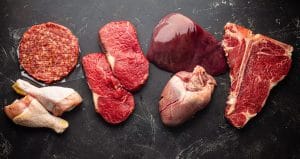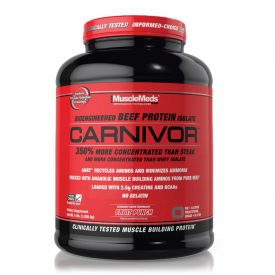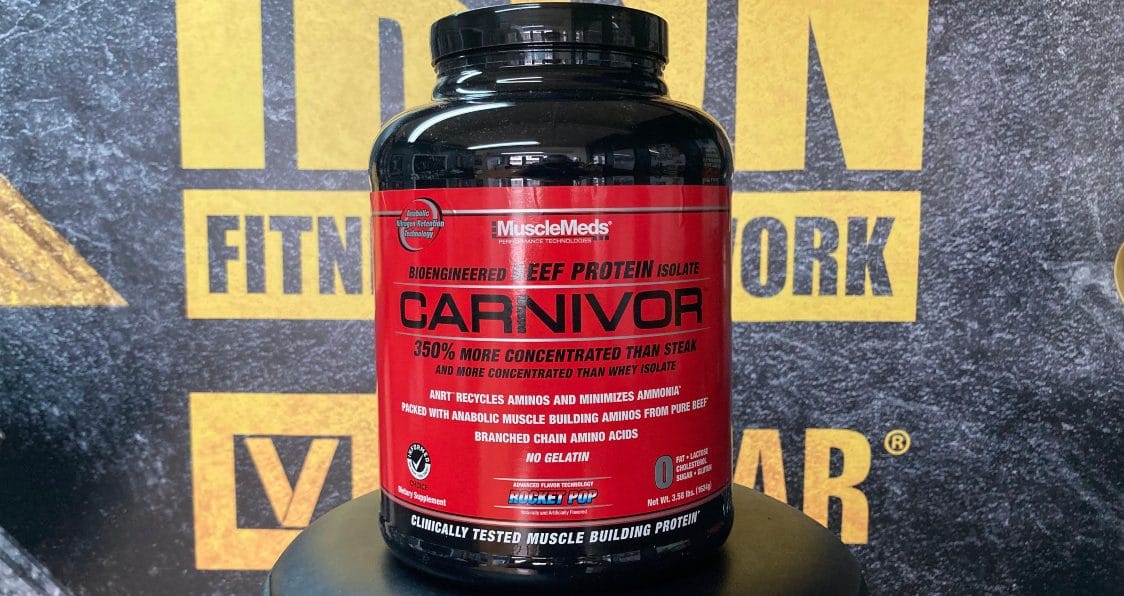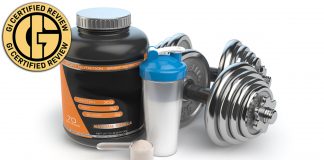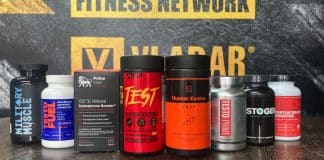The sweet spot for your protein intake
Putting on adequate amounts of muscle mass is one of the biggest parts of bodybuilding. You can be as lean and shredded as you want to be, but if you don’t have any size to back it up then essentially you’ll just look like you don’t lift when you are wearing clothes. The goal of bodybuilding is bulking up and gaining a tremendous amount of muscle to make people pause and take notice. In order to get the body you seek, you have to plan things accordingly, and one of the most crucial things is that your diet needs to be in place. That being said, protein is one of the most important macronutrients you can consume when it comes to building muscle. You won’t just be relying on training to get all of your gains. You’ll need to be eating right as well. Some even go as far as saying that nutrition is 70% of bodybuilding.
So, how much do you need? Let’s break it down.
Protein Overview
So everyone pretty much knows that the best macronutrient to build muscle is clearly protein, as you see so many products that advertise “high protein” and such. Carbohydrates provide you with energy to accomplish a tough training session in the gym, as well as recover after one. And last but not least of the big three macros is fat, which helps you to absorb the nutrients from the foods you consume. However, as discussed above, protein is for making gains. Look back to the diets of Arnold Schwarzenegger and other Golden Era bodybuilders, and most of it was protein. If you want to make the right amount of progress then you’re going to need to know how much protein you should be consuming..
Many people run out and start buying up as much protein powder and lean meat as possible hoping, to prep their meals full of the macro, and pack on pounds and pounds of muscle by eating an incredible amount of the macronutrient. Unfortunately for them, that kind of approach to muscle building is going to leave them with some gut issues, as well as crashing into a dead end hard and fast. There’s a science to building muscle and stuffing your face with an unmeasured amount of protein will ultimately get you nowhere, and can really just make you fat.
The Adequate Amount of Protein
There is an adequate amount of protein that you should be consuming to build muscle. If you go too low, you won’t build muscle, but too high and you can become overly fat. So if you’re intending to pack on muscle then just exactly how much protein should be consuming to get not only fast development, but sustainable results as well? There are a lot of different speculations and rumors as to the sweet spot. Some people say 0.8 grams per pound of bodyweight, others say 1.5 grams per pound of bodyweight.
Typically the sweet spot for the amount of protein you need is between those two numbers, but what it comes down to largely includes your goals. Are you bulking, cutting, or maintaining? How hard are you training? Are you doing a lot of cardio?
When to Consume More
One study from 2007 found that the participants, who took part in their 11 week training program, who were taking 1.5g of whey protein per kg of body weight per day concluded that whey protein seemed to ‘promote greater strength gains and muscle morphology during RE (Resistance Exercise) training.’
Another study from 2006 showed ‘that protein supplementation’ of 1.5g per pound of body weight ‘during resistance training, independent of source, increased lean tissue, mass, and strength over iso-caloric placebo and resistance training.’
Another study from 2001 found that participants who were taking 1.5g of protein per pound of bodyweight per day, compared to the subjects who were taking 0.5 grams per lb of bodyweight found that, ‘males that supplemented with whey protein while resistance training demonstrated greater improvement in knee extension peak torque and lean tissue mass than males engaged in training alone’.
When to Consume Less
Many times, people will ask the question of when they are cutting, or trying to lose weight if they should consume less protein or not, the thought process being that less calories equates to less fat. Surprisingly, the answer here is a resounding no. There was one study that had been conducted, it was a review of dietary protein during caloric restriction in resistance trained lean athletes, when trying to reduce body fat. And there was ‘evidence that protein needs increase when athletes restrict calories or have low body fat’.
The study concluded that the body fat percentage decreased for all the study groups, it also made a case for higher protein as the ‘protein needs for energy-restricted resistance-trained athletes are likely 2.3-3.1g’ (per kg of body weight) / 1 – 1.4g per lb of bodyweight.
It is worth remembering that protein works to reduce levels of the hunger hormone ghrelin, while it boosts appetite-reducing hormones. This leads to an automatic reduction in calorie intake, as you are not as hungry when you consume larger amounts of protein.
Our Favorite Protein Powder
Consuming adequate amounts of protein can be difficult, but protein powder supplements make it much easier. Now when it comes to what protein powder to choose, there are a lot on the market, and products like whey can cause stomach discomfort.
MuscleMeds Carnivor
Carnivor is a 100% beef protein isolate that is fast digesting and great tasting for an effective non-dairy protein supplement.
MuscleMeds Carnivore Beef Protein Isolate is a revolutionary protein supplement that is well-researched and clinically tested to improve muscle gains and aid in hitting your overall goals. Being packed with 23g of hydrolyzed beef protein, this product is 350% more concentrated in amino acids than steak, and it is also fast digesting, which works to make it easier on your stomach.
Being a non-dairy product gives athletes the opportunity to get a dairy-free product that will still produce adequate gains and results, potentially at an even better rate than your standard whey products. With a touch of zero-carb stevia extract for sweetness and flavor, this protein supplement not only provides the necessary amino acids but also enhances the taste with a hint of sweetness from the natural stevia extract.
Check out our individual review of MuscleMeds Carnivor!
Wrap Up
Overall, the correct amount of protein to take in largely depends on your goals and bodyweight. The sweet spot is typically found to be around .08-1.5 grams per pound of bodyweight, and while it can be hard to get there, protein products make it that much easier.
Do you agree with these findings? Let us know in the comments below and be sure to follow Generation Iron on Facebook and Twitter.


